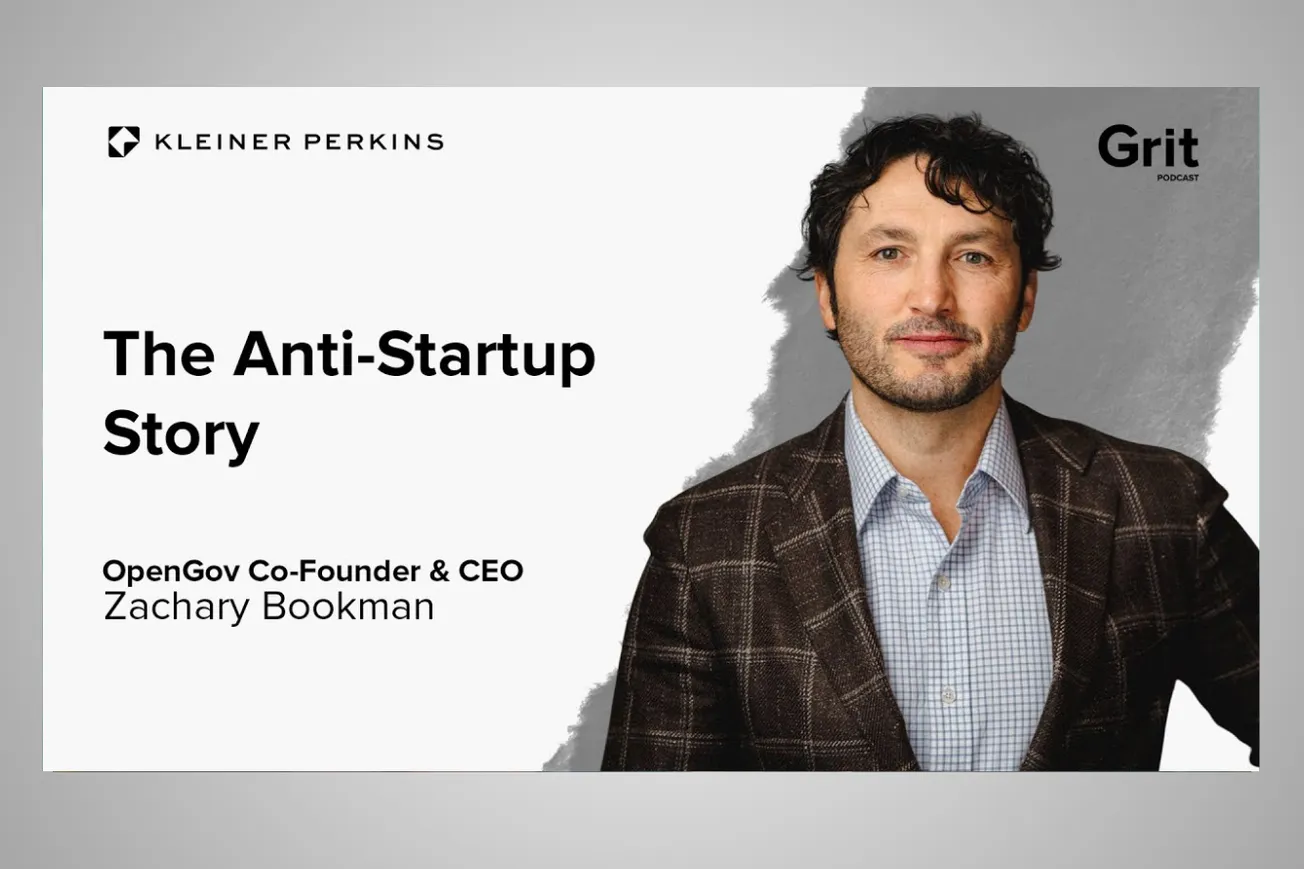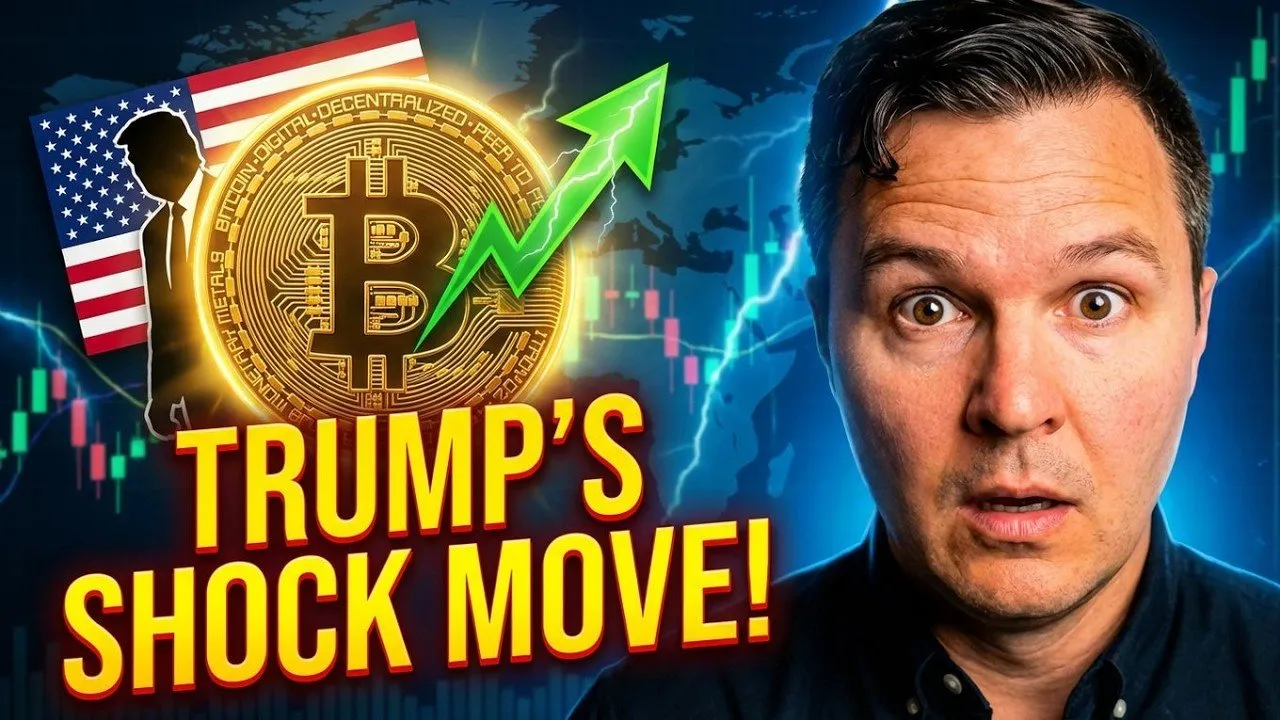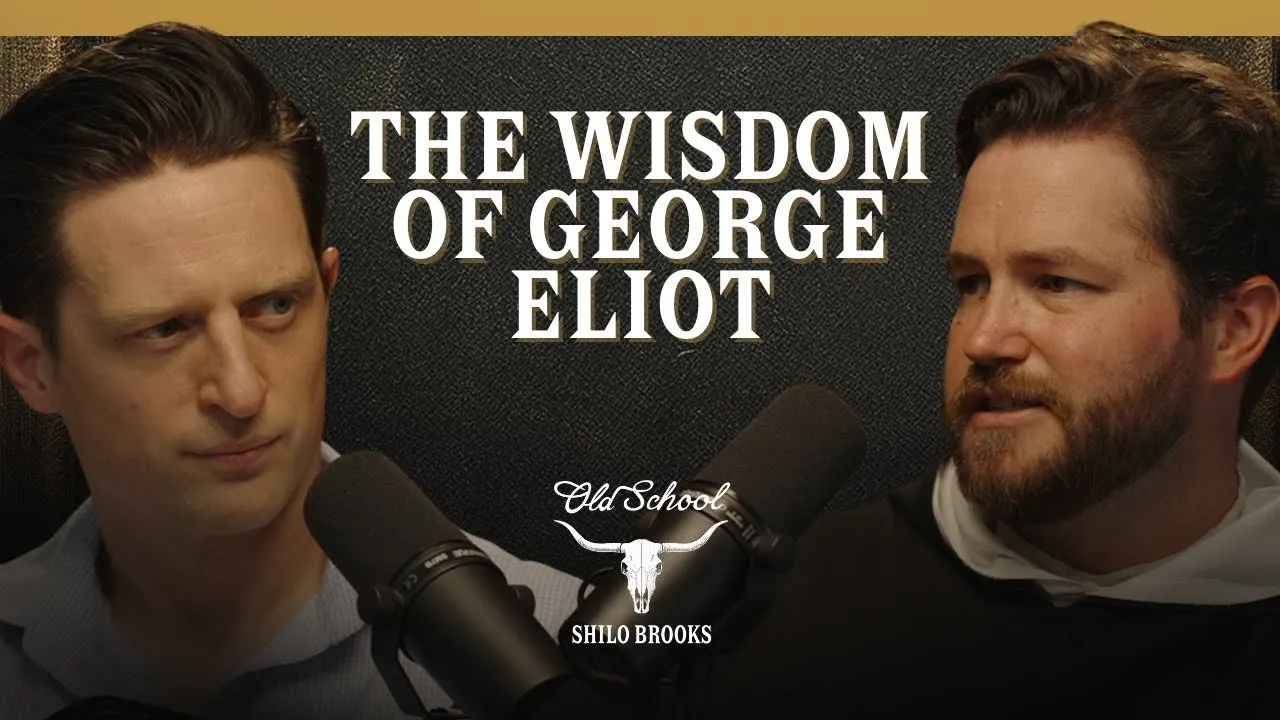Table of Contents
Explore the gritty, often "upside down" journey of Zac Bookman, CEO and Co-Founder of OpenGov, as he recounts the company's improbable rise to a $1.8 billion acquisition. This article delves into the unvarnished realities of building a mission-driven tech company, offering invaluable lessons on persistence, product-market fit, leadership, and surviving the brink for professionals keen on mastering the entrepreneurial path.
Key Takeaways
- Establish a clear organizational purpose: An unwavering mission guides strategic decisions and fosters enduring resilience.
- Optimize market focus for accelerated growth: Precisely define your ideal customer profile to maximize impact and resource allocation.
- Prioritize cultural alignment in recruitment: Transparently communicate challenges to attract talent genuinely committed to the company's ethos.
- Leverage incremental achievements for momentum: Celebrate small successes to build psychological drive, especially during periods of adversity.
- Transform setbacks into strategic opportunities: Reframe crises as catalysts for re-evaluation, sustained commitment, and innovative problem-solving.
- Cultivate adaptable leadership: Be prepared to assume varied roles and make difficult personnel decisions essential for organizational viability.
- Anticipate non-linear growth trajectories: Recognize that significant expansion often entails periods of financial strain and persistent fundraising efforts.
- Execute strategic exits for mission continuity: Pursue acquisitions that align with long-term vision and benefit all key stakeholders.
Timeline Overview:
- 00:00 - Show Open: This segment introduces OpenGov's core mission to modernize government back offices, immediately highlighting the significant product and revenue challenges faced in its nascent stages.
- 01:10 - Introduction: Zac Bookman, OpenGov's Co-founder and CEO, is presented, discussing the recent $1.8 billion acquisition by Cox Enterprises and his unwavering commitment to the company's future.
- 02:34 - OpenGov’s mission: Details the consistent and central mission to empower more effective and accountable government through sophisticated cloud-based ERP systems.
- 05:28 - Shrinking the product-market fit: Bookman explains the critical strategic insight that narrowing the ideal customer profile (ICP) accelerates growth within vertical software markets.
- 08:35 - Super mission driven: This section emphasizes the necessity of recruiting employees who are deeply aligned with OpenGov's public service mission, even if it means transparently detailing the job's toughest aspects during recruitment.
- 10:06 - Why OpenGov almost shut down: Zac recounts the company's near-collapse during its early months, marked by co-founder departures, product issues, and his personal struggle before a transformative epiphany.
- 14:41 - Zac’s early career: Explores Bookman's diverse background, including his experiences as a lawyer, Fulbright scholar, and foreign policy advisor, preceding his venture into tech entrepreneurship.
- 18:17 - Picking (and losing) a CTO: Details the chaotic process of appointing a CTO hastily and the subsequent, difficult separation due to fundamental differences in product vision and commitment.
- 25:18 - Growing upside-down: Describes OpenGov's challenging financial trajectory, where substantial expenditure consistently outpaced initial revenue growth, leading to significant investor skepticism.
- 28:09 - The SPAC backstabber: This part likely details a challenging experience involving a Special Purpose Acquisition Company (SPAC) transaction that did not proceed as anticipated.
- 34:33 - Why Zac didn’t get fired: This segment probably discusses the strategic decisions or unforeseen circumstances that allowed Bookman to retain his leadership position despite immense pressure.
- 36:46 - Selling in 2024: Explains the strategic rationale behind OpenGov's $1.8 billion sale, emphasizing alignment with the company's mission and the welfare of its employees, investors, and customers.
- 40:41 - Growth by acquisition: This section likely covers OpenGov's strategy of expanding its market reach and capabilities through the acquisition of other companies.
- 46:25 - John Chambers and PMF: This part may explore the influence of former Cisco CEO John Chambers on OpenGov's refined approach to achieving optimal product-market fit.
- 54:02 - Zac’s cross-country bike ride: This segment likely shares a personal anecdote reflecting Bookman's capacity for extreme endurance and determination outside his professional life.
- 1:01:26 - Expectations vs. reality: This section probably contrasts the idealized perceptions of entrepreneurial success with the often-harsh realities and challenges encountered.
- 1:04:05 - The coup attempt: This part potentially recounts an internal power struggle or attempt to remove Bookman from his leadership role.
- 1:07:27 - Tiring work: This segment likely highlights the exhausting and demanding nature of building and scaling a tech company from the ground up.
- 1:11:41 - Going to the White House: This portion might detail a significant achievement or recognition for OpenGov at a high governmental level.
- 1:15:59 - DOGE & disrespect: This segment possibly touches upon market trends or instances where OpenGov's mission-driven approach was misunderstood or dismissed.
- 1:19:23 - “We’re just getting started”: Zac Bookman's forward-looking statement post-acquisition, reaffirming his deep commitment to the company's continued growth and mission.
- 1:20:53 - Who OpenGov is hiring (and where): This part likely outlines OpenGov's current recruitment priorities and geographical expansion.
- 1:21:50 - What “grit” means to Zac: This segment offers Bookman's personal definition and understanding of the concept of "grit" in the context of entrepreneurship.
OpenGov’s Mission
From its inception, OpenGov held a clear, unwavering mission: to power more effective and accountable government. Zac Bookman and his co-founders envisioned building a cloud-based Enterprise Resource Planning (ERP) system. This comprehensive system would modernize the "whole back office of a government," replacing antiquated 30- to 40-year-old green-screen systems and paper-filled cabinets. Their aim was to fix issues like improper forecasting and budgeting by bringing governments into the modern digital age.
OpenGov's software is a vertical SaaS solution, specifically designed for state and local governments. It manages everything from permitting and licensing to asset management, procurement, and financial systems. Bookman emphasizes their singular focus on this vertical, avoiding federal and international markets—a lesson learned from past mistakes. The mission was stable even when the company faced dire straits.
Shrinking the Product-Market Fit
One of Zac Bookman's most crucial lessons was the counterintuitive truth of product-market fit (PMF) in vertical software: "the more you shrink your PMF the faster you grow." He learned this firsthand while traveling internationally, meeting mayors in London and Queensland, only to realize he was wasting precious time.
Instead of trying to appeal to a broad "universe of potential buyers," Bookman discovered the power of identifying and focusing on the Ideal Customer Profile (ICP). For OpenGov, this meant targeting about 20,000 state and local governments, then further refining that to cities with "young, change-making city managers," existing transparency initiatives, or budgets for new ERP systems. His practical implication for professionals: your time is finite. Spend it on the very few people or opportunities where there's an "obvious and resounding yes," rather than trying to convert reluctant fits. He applied this aggressive "reverse sell" strategy not only in sales but also in fundraising, asking investors to say "no to me quickly, please," to avoid wasted meetings.
Super Mission Driven
OpenGov isn't just a tech company; it's a gritty, mission-driven organization. Zac Bookman acknowledges that building software for governments isn't the "hot tech company" dream for most Silicon Valley engineers. Because of this, their recruitment strategy involves a unique form of "reverse sell."
When interviewing candidates, Bookman doesn't just paint a rosy picture. He deliberately details "the worst day of your job," ensuring potential hires fully grasp the "pain and grind." This candor weeds out those not truly committed to the mission. OpenGov specifically seeks individuals who resonate with public service—perhaps someone whose father was a firefighter, or an immigrant who appreciates the rule of law and wants to give back. For professionals, this highlights the immense power of mission alignment. Building a strong, resilient team means finding people whose personal values deeply connect with the company's purpose, enabling them to persevere through difficulties when others might quit.
Why OpenGov Almost Shut Down
The story of OpenGov's near-demise is a stark reminder of entrepreneurial hardship. Eight to ten months in, Zac Bookman returned from Afghanistan, where he had been an advisor to General McMaster, to find his nascent company in "total disarray." Two co-founders, including the initial CEO and CTO, departed due to internal fighting and lack of progress. OpenGov had a grand vision and mission but "no product, no revenue."
Bookman, a lawyer by training, felt he had "destroyed my career." Demoralized and three days away from "closing the doors," he had a critical epiphany: "I've already destroyed my career... I don't have anything to lose." This mindset shift allowed him to ask, "What's positive about this situation? What do we have to build on?" He spent an entire Christmas break immersing himself in a 4-inch-thick book on government finance, learning deep multi-fund accounting. From there, it became a "brick by brick" effort. They started celebrating "the smallest wins," like signing their first government customer for a mere $1,800. For professionals facing overwhelming odds, Bookman's experience offers a powerful lesson: when you feel you have "nothing to lose," you gain the freedom to re-evaluate, commit fully, and fight for every inch of progress. The "whole game is momentum," built from tiny, celebrated victories during the darkest days.
Zac’s Early Career
Zac Bookman's background is notably unconventional for a tech CEO. Raised near government (his father was a civil servant), he started his entrepreneurial journey young with a lawnmowing business. His formal education included studying government, law school, and a Master's in Public Administration. He then pursued a Fulbright fellowship in Mexico, studying transparency and corruption, followed by a career as a law clerk and trial litigator.
His connection to Silicon Valley came through a co-clerk who introduced him to Joe Lonsdale, leading to his involvement with Joe's first fund, Formation 8. Even as OpenGov was getting off the ground, Bookman was juggling multiple intense opportunities: being courted for a role with Kamala Harris, considering a position with General McMaster in Afghanistan, and his initial involvement with Formation 8. He ultimately chose to go to Afghanistan, where he symbolically wrote the first check for OpenGov from "half a shipping container with two soldiers." His return saw him initially as President and COO, working for a 21-year-old CEO, before taking the helm. For professionals, this multi-faceted career path underscores that success isn't linear. Diverse experiences, even seemingly unrelated ones, can provide unique perspectives and skills crucial for leadership in unexpected fields.
Picking (and Losing) a CTO
The early days of OpenGov were a chaotic "shuffle-oo," as Bookman describes it. After the initial co-founding CEO and CTO departed, Zac was left with a mess. He needed a technical partner immediately. In a moment of sheer entrepreneurial desperation, he approached his top engineer, a "very talented guy," and asked, "You want to be my partner? You're the CTO now." This "battlefield" appointment, made by a "naive... lawyer Afghanistan guy," worked for a couple of years.
However, the relationship eventually fractured over a fundamental disagreement. When a million-dollar deal with the state of Ohio hinged on a product roadmap adjustment, the CTO resisted, viewing it as "BS." Bookman, focused on survival, saw it as necessary. The friction escalated until Bookman directly asked, "Are you in or are you out?" After 40 seconds of silence, the CTO replied, "I'm out." Terrified but resolute, Bookman was forced to find a new technical lead, going through a series of "wrong heads of engineering"—often overqualified individuals with impressive resumes who didn't fit the company's gritty reality. This candid account highlights the critical importance of founder alignment and cultural fit, especially in early-stage startups. A strong partnership demands shared vision and a willingness to adapt, even if it means painful personnel decisions.
Growing Upside-Down
OpenGov's growth trajectory was far from conventional. In 2012, they had zero revenue. By 2013, amidst chaos, they reached $200,000 in Annual Recurring Revenue (ARR) and surprisingly raised funding from Andreessen Horowitz. However, the subsequent years saw growth that Bookman candidly describes as "upside-down." While revenue climbed from $200k to $1.9M, then to $2M, $4.4M, $8.4M, $14.4M, and $19.6M, it was accompanied by significant spending.
This meant the company was "expending a lot of money" for growth that felt "lame" and "mortifying" to investors. Despite being named a tech pioneer by the World Economic Forum and getting John Chambers (former Cisco CEO) on the board in 2016, the "sizzle on the company didn't match the steak." Bookman almost lost the company again in 2015, saved only by an investment from Laurene Powell Jobs's Emerson Collective. Then, in 2019, he faced over 40 rejections while trying to raise more money, hitting a point where he was "out of bullets." For professionals, this illustrates that growth isn't always smooth or linear, especially in complex markets. It requires incredible resilience to push through periods where effort seems disproportionate to results, securing bridge funding, and weathering constant investor scrutiny.
Selling in 2024
In 2024, after 13 years, Cox Enterprises acquired OpenGov for $1.8 billion—a massive validation. Yet, for Zac Bookman, it’s not an end but a new beginning. He left "the vast majority of my net worth in the company" because he's "all in" on the mission.
The decision to sell was carefully considered, especially given Cox's reputation: "These people buy and don't sell." This aligned perfectly with OpenGov's enduring mission and dedication to its employees. Bookman views the acquisition as a "triple win": for employees, investors, and customers, plus a "quadruple win for me and the management." This pragmatic and mission-aligned approach to an exit provides a powerful lesson for professionals. It’s not just about the monetary valuation, but about finding a partner who shares your long-term vision and commitment to stakeholders. A truly successful sale can be a catalyst for further growth, not merely a finish line.
Conclusion:
Zac Bookman's journey with OpenGov exemplifies that building a billion-dollar company involves unconventional paths, relentless persistence, and deep mission alignment. Professionals can navigate extreme challenges by embracing transparency, focusing on core values, and understanding that true success lies in continuous momentum and strategic adaptation.





